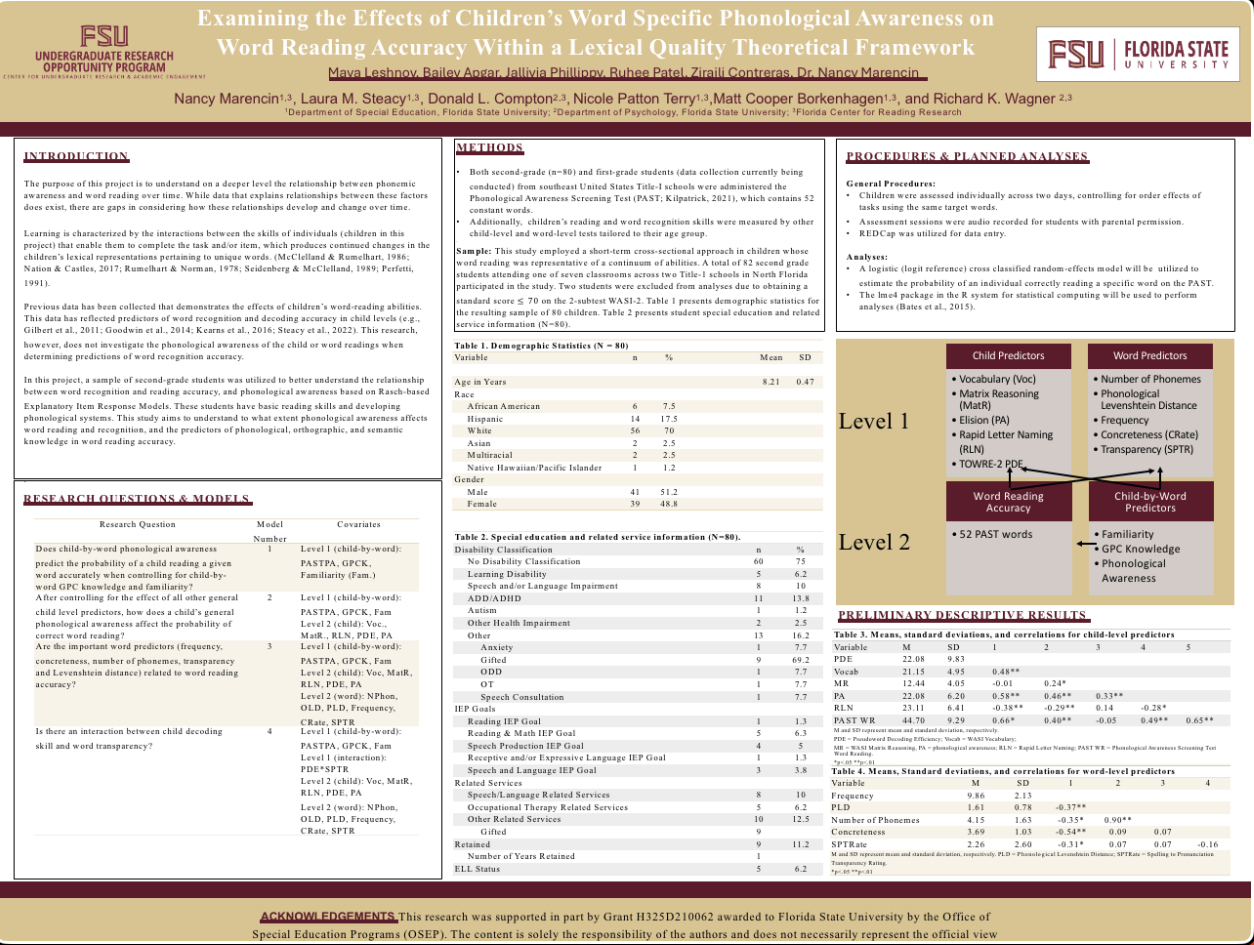Research Symposium
25th annual Undergraduate Research Symposium, April 1, 2025
Jalliyia Phillippy Poster Session 1: 9:30 am - 10:30 am / Poster #205

BIO
My name is Jalliyia, and I’m a sophomore majoring in Public Health from Broward County, Florida. I have a deep interest in health and medicine, with a particular focus on understanding how disparities in healthcare affect minority populations. I’m passionate about finding solutions to improve healthcare access and outcomes, especially for underserved communities. I also aim to contribute to the advancement of medical practices through innovative treatments, technologies, and healthcare policies. My ultimate career goal is to become a doctor, where I can apply my knowledge to improve patient care and outcomes in the medical field.
Examining the Effects of Children’s Word Specific Phonological Awareness on Word Reading Accuracy within a Lexical Quality Theoretical Framework
Authors: Jalliyia Phillippy, Dr. Nancy C. MarencinStudent Major: Public Health
Mentor: Dr. Nancy C. Marencin
Mentor's Department: Florida Center for Reading Research & Psychology Mentor's College: College of Arts and Sciences Co-Presenters: Maya Leshnov, Ziraili Contreras, Bailey Apgar, Ruhee Patel
Abstract
Purpose
Although the significant relation between phonological awareness and word reading is well documented, questions remain about the nature of this relationship over time. This is particularly important given that the development of lexical representations is item-based and depends on the unique interaction between the skills a child brings to the task and item/word characteristics. This study integrates a word specific measure of PA to further clarify the relationship between the quality of an individual’s phonological representations and word reading accuracy.
Method
Second-grade (n=80) and first-grade students (data collection in progress) attending Title-I schools in the southeast United States completed the Phonological Awareness Screening Test (PAST; Kilpatrick, 2021) and read the same 52 words. Children also completed other child-level, word-level and child-by-word level measures of reading and reading related skills.
Results
Preliminary results from logistic cross classified random-effects models using our sample of second-grade students indicated significant child-level (decoding and vocabulary) and word-level (spelling-to-pronunciation transparency rating, frequency, and phoneme length) predictors of word reading accuracy. At the child-by-word level, a child’s word specific PA, letter-sound knowledge, and familiarity were not significant predictors.
Conclusions
Initial results suggest these second-grade students have redundant orthographic, phonological, and semantic representations of the words in our study. Redundancy can facilitate word recognition in the absence of complete and precise word knowledge (Adlof et al., 2016). The lack of significant child-by-word effects in our models may represent the important role redundancy played in their word reading accuracy and the potential consequences of lexical quality (Perfetti, 2007).
Keywords: Phonological awareness, word reading, decoding

